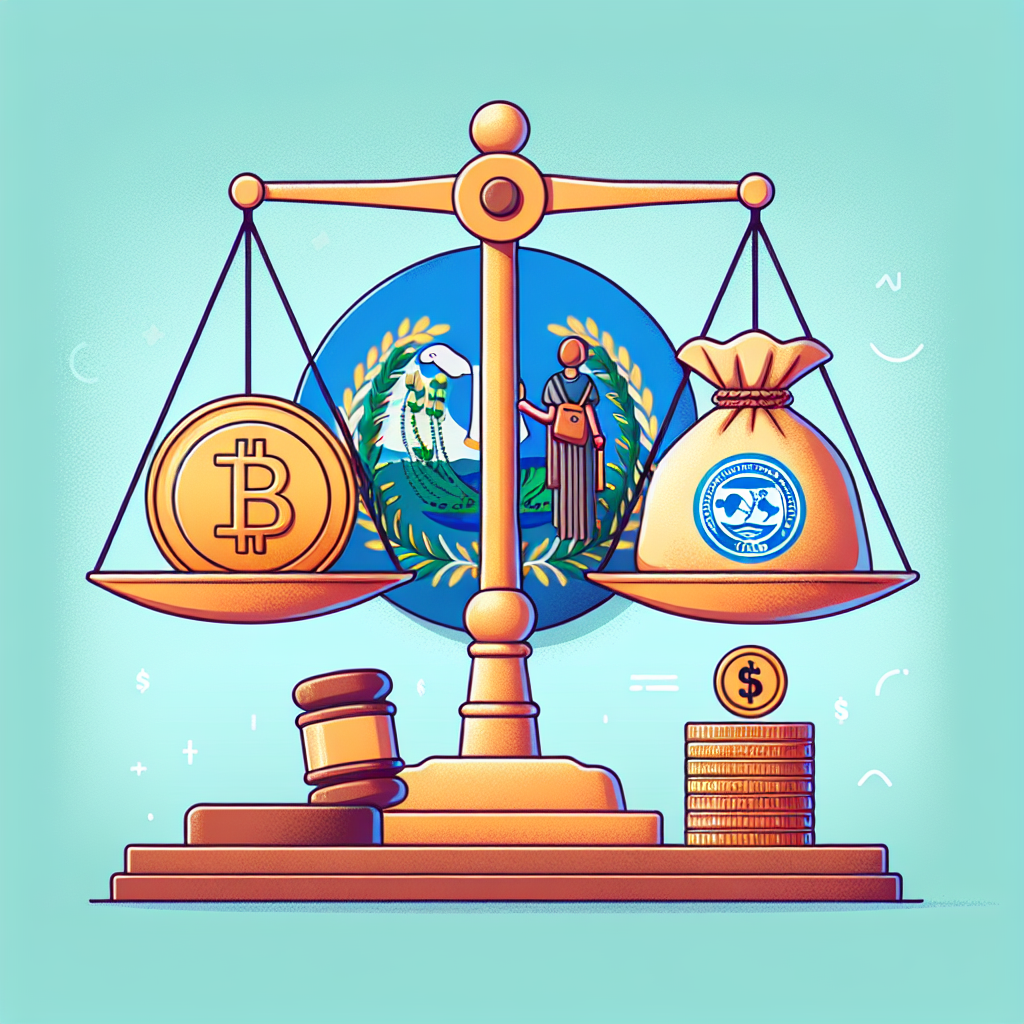Bitcoin
El Salvador Agrees to Modify Bitcoin Legal Framework in $1.4 Billion IMF Loan Deal

El Salvador has made headlines as the first nation to adopt bitcoin as legal tender, a revolutionary move under President Nayib Bukele’s administration. However, recent developments indicate a significant pivot in the country’s approach to its digital currency strategy. After prolonged negotiations extending over four years, El Salvador has inked a landmark deal with the International Monetary Fund (IMF) securing a $1.45 billion loan, contingent upon a series of fiscal consolidations including a reevaluation of its ambitious Bitcoin Project.
The IMF agreement is poised to usher in a new era of stability for El Salvador’s economy, emphasizing essential reforms aimed at reducing the national debt-to-GDP ratio and enhancing the overall economic equilibrium. Despite the initial enthusiasm surrounding the adoption of Bitcoin, the arrangement with the IMF suggests a scaling back, shifting the cryptocurrency’s role from a mandated economic instrument to a voluntary one within the private sector. This adjustment addresses previous concerns flagged by the IMF regarding the potential risks linked to the country’s pioneering crypto endeavors.
Notably, El Salvador’s commitment to the Bitcoin ecosystem remains intact, albeit with moderated ambitions. The government continues to augment its reserves by acquiring one Bitcoin daily, a strategy that has even garnered commendation from tech magnate Elon Musk for its forward-thinking approach in building a strategic Bitcoin reserve.
However, the Chivo crypto wallet, a cornerstone of El Salvador’s Bitcoin integration launched in 2021, has encountered its fair share of challenges. Initially successful in attracting over three million users by offering a $30 Bitcoin incentive for new sign-ups, the platform’s adoption has not sustained momentum. By 2022, the Chivo wallet accounted for less than 2.1% of total remittances, reflecting subdued user engagement over time. In response, authorities are contemplating a phased reduction in the state’s involvement with the Chivo project, focusing instead on reinforcing and streamlining other economic reforms.
These reforms have been broad and varied, including strategies such as the proactive buyback of dollar-denominated bonds and the restructuring of pension-related debts. Furthermore, El Salvador is continuing to expand its financial landscape to incorporate new players, evidenced by the recent licensing of Bitget as a Bitcoin Service Provider.
The recalibration of El Salvador’s Bitcoin policy occurs amidst a tumultuous period for the global cryptocurrency market, which has seen widespread volatility and price declines, particularly following announcements of reduced interest rates by the Federal Reserve. These market conditions necessitate a cautious approach to national policies concerning cryptocurrencies, highlighting the balance countries must strike between innovation and economic stability.
El Salvador’s ongoing policy adjustments and negotiations with international financial entities underscore a strategic, albeit cautious, integration of cryptocurrency into its broader economic framework. The government’s approach appears to steer towards leveraging the benefits of digital currencies while mitigating associated risks through regulatory and fiscal prudence. As the situation develops, the global financial community remains keenly observant of how El Salvador’s pioneering journey in national cryptocurrency adoption continues to evolve in this complex and ever-changing economic landscape.
-

 Press Releases2 years ago
Press Releases2 years agoGaming Technologies of the New Time!
-

 Altcoins11 months ago
Altcoins11 months agoBitcoin Declines Below $80K: deVere CEO Nigel Green Remains Bullish on Long-Term Outlook Following Strategic U.S. Bitcoin Reserve Announcement
-

 Altcoins11 months ago
Altcoins11 months agoCalls for Enhanced Discussion on Bitcoin as Brazil’s Reserve Asset: A Move Towards ‘Internet’s Gold’
-

 Bitcoin1 year ago
Bitcoin1 year agoBitcoin Surges Past $64K as SEI and POPCAT Lead Daily Crypto Gains on September 25
-

 Press Releases2 years ago
Press Releases2 years agoEvo Exchange: Redefining the Decentralized Exchange Landscape
-

 Bitcoin7 months ago
Bitcoin7 months agoGrayscale Investments Submits Draft Registration for IPO, Aiming for Public Trading in U.S.
-

 Press Releases1 year ago
Press Releases1 year agoCODE, a Newly Born Project Brings Decentralization Back to the Main Menu
-

 Bitcoin7 months ago
Bitcoin7 months agoPeter Schiff Critiques New Crypto Legislation, Claims Bitcoin (BTC) Gains are Short-Lived




